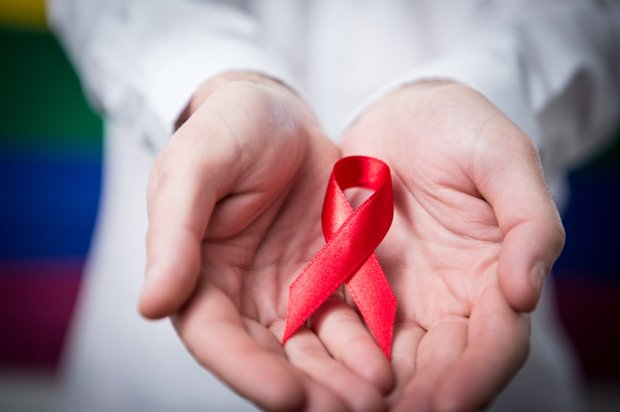HIV and Aids
HIV isn't the death sentence it used to be, but there's still no cure. Here's what you need to know about HIV and Aids.

How much do you know about HIV?
What is HIV?
HIV (human immunodeficiency virus) is a virus that attacks the body’s immune system. Our immune system defends our body against illness, and blood plays an important part in this. We have millions of blood cells, of which about 1% are white. A particularly important type of white cell is the T helper cell. HIV attacks T helper cells and damages the body’s ability to fight infection.
HIV can develop into Aids (acquired immune deficiency syndrome) – meaning the body is no longer able to guard against infection and disease.
How do you get HIV?
The HIV virus is found in infected blood, semen or vaginal fluid. In general, infection can occur in the following ways:
- Having unprotected sex with someone who is HIV positive. You can protect yourself from HIV infection by using condoms. Be aware that only barrier contraceptives, such as condoms, will protect against HIV and other STIs. Hormonal contraceptives, such as the pill or the patch, will not offer this protection.
- The risk of contracting HIV through unprotected oral sex is less likely – but transmission is possible if semen, vaginal fluid or menstrual blood come into contact with bleeding gums or mouth infections.
- Sharing a hypodermic syringe with someone who has HIV can lead to the exchange of infected blood.
- A mother who has HIV can pass it on to her baby while she is pregnant, or via breastfeeding. If you are HIV positive and pregnant there are ways of reducing the risk of your baby becoming infected. Speak to your doctor (GP) for more information.
- In the past, people have contracted the HIV virus from receiving contaminated blood in a transfusion, but these days this is incredibly rare. Now, most countries test blood for HIV prior to any transfusions.
There are many myths about how HIV is spread. For the record, the virus is unable to survive outside of the body. It means you CANNOT catch HIV from kissing, snogging, toilet seats, sharing towels or giving blood.
What are the symptoms of HIV?
Some people show no symptoms of HIV infection at all, but between 70 and 90% of people will exhibit some signs. Symptoms usually appear around 10 days after infection. It’s common for a fever, rash and a severe sore throat to appear together. However, someone who is HIV positive may feel perfectly well even though the virus is still active within the body.
The virus is infectious from the moment it is contracted. This means there’s a risk that someone with HIV can be unaware of their condition for some time and unwittingly expose others to the virus.
“Around 28% of people with HIV don’t know they’re infected,” says Gareth Davies of the Terrence Higgins Trust. “It’s very important to go and get tested if you think you may have put yourself at risk.”
What are the symptoms of Aids?
The onset of Aids is associated with a wide range of symptoms. This is because the body’s immune system has become so weak that it is vulnerable to all kinds of infection and conditions. Common complaints include fatigue, weight loss, chest and skin infections, diarrhoea, night sweats and ulcers.
Getting an HIV test
You can get a free and confidential test at your local sexual health clinic. HIV tests have improved a lot in recent years and it is now possible to reliably detect HIV from one month after infection. The most common test involves taking a small sample of blood and sending it off to a laboratory. However, there are now HIV tests available that use blood spots or saliva to test for HIV, while it is also possible to take an HIV test which provides the result in just 20 minutes.
If you are a sexually active gay men it is recommended that you take an HIV test at least once a year.
If you would like to complete the test in the privacy of your own home free self-sampling kits are available in England.
Treating HIV
To date, there is no cure for HIV. Treatment focuses on slowing down, or stabilising, the progress of the HIV infection, and managing the symptoms of any associated infection or complaint.
A range of drugs and medication is available for the treatment of HIV. What is used differs from patient to patient, while the virus itself can often become resistant to certain drugs. Getting an early diagnosis and making sure you stick to the drug regime you’re given can greatly increase the likelihood of living a long and healthy life.
Counselling is often of great benefit, especially to those who lack support among family and friends. Support groups for people with HIV and Aids can also help to put you in touch with people going through a similar experience, which may help you to cope. Consult your GP for more information.
Reduce your risk of infection. Make sex safer by using condoms every time.
Next Steps
- Are you Getting Some? Get Tested! Search for a sexual health clinic near you
- Chat about this subject on our Discussion Boards.
- Need help but confused where to go locally? Download our StepFinder iPhone app to find local support services quickly.
By
Updated on 15-Dec-2015
Photo of aids ribbon by Shutterstock.
No featured article














